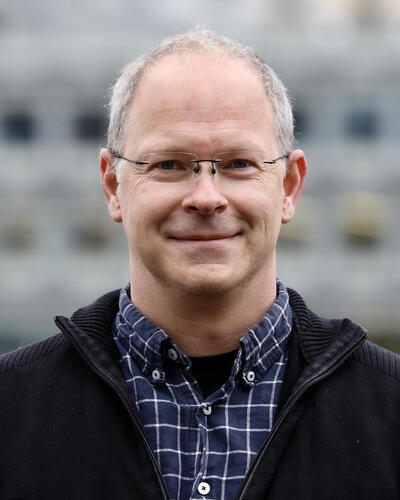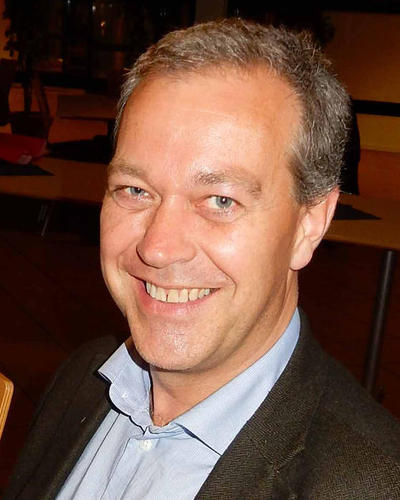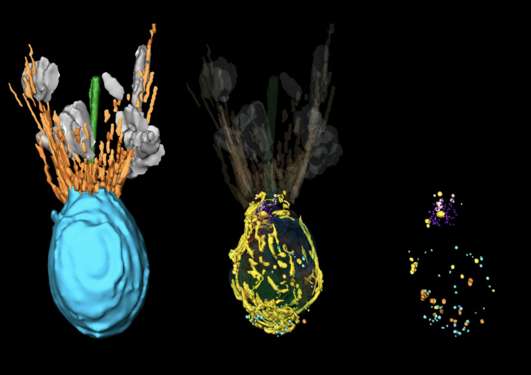Congratulations Dr. Göhde!
On the 15th of December 2023, PhD candidate Ronja Göhde successfully defended her thesis titled: “Secretory vesicle protein homologues in choanoflagellates”.
Hovedinnhold
Ronja Ghöde presented the remarkable work she has conducted in the group of Pawel Burkhardt in front of an evaluation committee and audience comprising of friends, family and colleagues. She then discussed her results with opponents Thibaut Brunet, from the Pasteur Institute, Paris, and Nathalie Jurisch-Yaksi, from the Norwegian University of Science and Technology (NTNU).
Uncovering the secrets of synapses evolution
During her PhD, Ronja worked on choanoflagellates, the closest unicellular relatives to animals. In the nervous system of animals, neurotransmitters enclosed in synaptic vesicles carry information from one neuron to the next. While they do not have a nervous system, choanoflagellates possess part of the machinery necessary for this signal transmission to take place. “Ronja’s work revealed several surprises about the ancestry of neurosecretory vesicles and constitutes an important step in reconstructing the origin and evolution of secretory cells, synapses, and neurons”, Pawel Burkhardt explained. “She found that many synaptic vesicle proteins were present before the first animals appeared.”
Ronja published some of these findings as a lead author in an article titled “Choanoflagellates and the ancestry of neurosecretory vesicles”, in Philosophical Transactions of the Royal Society B in 2021. “There are many cases where Ronja really raised the bar of what we do in the lab”, Pawel added.
“There are many cases where Ronja really raised the bar of what we do in the lab”
- Pawel Burkhardt
An enduring interest for membrane fusion proteins
Ronja’s interest in biochemistry was sparked during her bachelor’s degree in biology at the Technical University of Darmstadt, leading her to pursue a Master’s degree in Biochemistry at the University of Heidelberg. After attending a guest lecture on membrane fusion proteins, she knew that she had found her research interest and searched for PhD positions directly linked to that topic. In 2018, she joined the group of Pawel Burkhardt at the Michael Sars Centre.
Sharing her work and interacting with the research community was a highlight of Ronja’s PhD, and she particularly enjoyed attending conferences. “I had not been to any conferences before I became a PhD student”, she explained. “Going there for the first time was very exciting, also quite frightening actually but then meeting so many people who are so excited about your research and find it so interesting, that was an amazing experience.”
Next career steps
Completing a PhD comes with challenges, but Ronja will fondly remember her time at the Centre specifically in the Burkhardt group. “Being in Pawel’s group was great and everyone is so friendly, so open and helpful”, she said. “Being at Sars was an amazing experience as well, being surrounded by so many people who are passionate about what they do”. For the next step of her career, she plans on carrying on with a postdoc in neurobiology. We wish her all the best for this next exciting chapter of her career!




















